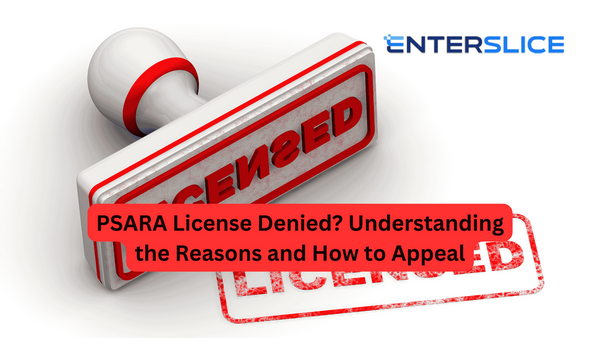Notifications
ALL BUSINESS
COMIDA
DIRECTORIES
ENTERTAINMENT
FINER THINGS
HEALTH
MARKETPLACE
MEMBER's ONLY
MONEY MATTER$
MOTIVATIONAL
NEWS & WEATHER
TECHNOLOGIA
TV NETWORKS
VIDEOS
VOTE USA 2026/2028
INVESTOR RELATIONS
COMING 2026 / 2027
ALL BUSINESS
COMIDA
DIRECTORIES
ENTERTAINMENT
FINER THINGS
HEALTH
MARKETPLACE
MEMBER's ONLY
MONEY MATTER$
MOTIVATIONAL
NEWS & WEATHER
TECHNOLOGIA
TV NETWORKS
VIDEOS
VOTE USA 2026/2028
INVESTOR RELATIONS
COMING 2026 / 2027
About Me
 Dheeraj Kumar
Dheeraj Kumar I specialize in advisory, regulatory compliance, and consulting, helping businesses meet legal requirements easily. I provide tailored solutions to address regulatory challenges, ensuring companies stay compliant and achieve their goals. My focus is on offering clear, practical advice that simplifies the process.
Posted by - Dheeraj Kumar -
on - December 9, 2024 -
Filed in - Business -
PSARA License PSARA License Deny appeal for psara license -
432 Views - 0 Comments - 0 Likes - 0 Reviews

The PSARA (Private Security Agencies Regulation Act) license is a critical legal requirement for security agencies operating in India. This license ensures that private security firms follow all necessary protocols for training, recruitment, and operational standards, which in turn helps maintain safety and professionalism in the sector. However, security agencies often face challenges in obtaining the PSARA license, and in some cases, their applications may be denied. If your PSARA license has been rejected, don’t worry. In this blog, we will explore the reasons why a PSARA license might be denied, and how to effectively appeal the decision to ensure your agency can continue its operations legally. Understanding the grounds for rejection and the appeals process is crucial for anyone in the security services industry.
The PSARA license is not just a formality but a legal necessity for any private security agency wishing to operate in India. This license is issued by the state government, and it is mandatory for security agencies to acquire it to offer services such as guarding establishments, providing personal security, or managing event security. Without a PSARA license, a security agency cannot legally function in the country. The PSARA license serves to regulate the security industry, ensuring that agencies meet minimum standards for the safety of clients, employees, and the general public.
The licensing process ensures that security agencies are legitimate, meet essential operational standards, and are compliant with relevant laws. It includes requirements related to employee qualifications, infrastructure, training, background checks, and financial stability. A failure to meet these requirements can result in the denial of a PSARA license.
There are several reasons why a PSARA license application might be denied. Understanding these common causes can help you identify and rectify any issues in your application before reapplying or appealing the decision. Here are the most common reasons for PSARA license denial:
One of the most frequent causes for rejection is the submission of incomplete or inaccurate documents. The PSARA license application requires several supporting documents, including proof of company registration, identity proof of directors, address proof, police clearance certificates, financial statements, and other essential documents. If any of these documents are missing or not in the required format, it can lead to a denial of your application.
To apply for a PSARA license, your agency must meet specific eligibility criteria. For example, the agency must be a registered company under the Companies Act, and the directors should have no criminal records. If your agency fails to meet these eligibility requirements, the application is likely to be rejected. Moreover, the agency should have a minimum of three years of operational experience in the security industry, which must also be documented.
PSARA mandates that security agencies provide proper training to their personnel. If your agency does not meet the prescribed training standards, your application could be rejected. The training should cover various aspects of security work, including handling of security equipment, communication protocols, crowd control, and emergency response procedures. Failure to ensure that your employees are adequately trained could lead to a denial.
A crucial requirement under the PSARA Act is that all security agency personnel undergo thorough background checks. These checks ensure that the staff has no criminal background or ties to illegal activities. If your agency fails to conduct proper background checks, or if any personnel have criminal records, it can lead to rejection of your PSARA license application.
PSARA also sets certain infrastructure requirements for security agencies. Your agency needs to have adequate office space, training facilities, and proper infrastructure to carry out security operations. Failure to comply with these infrastructure requirements could lead to the rejection of your application.
The PSARA Act also requires that security agencies prove their financial stability. This can include providing documents such as bank statements, income tax returns, and audit reports to show that your agency has the financial capacity to operate legally and effectively. If your agency cannot provide adequate proof of financial stability, it could result in a denial.
If your agency has previously violated the terms of the PSARA Act, or if there have been complaints or legal actions taken against your agency, the authorities may reject your license application. A history of non-compliance or violation of the law can create a negative impression and result in rejection.
If your PSARA license application has been denied, it’s important not to panic. There are several steps you can take to appeal the decision and increase the chances of securing your license. Here’s how we can go about the appeals process:
The first step in appealing a denied PSARA license application is to carefully review the reasons provided for the denial. The licensing authority should provide you with a clear explanation of why your application was rejected. This information will guide you in addressing the specific issues and making necessary corrections.
Once you know the reasons for the rejection, you can begin rectifying the issues that led to the denial. This might involve providing missing documentation, ensuring that all background checks are completed, improving your training programs, or upgrading your office infrastructure to meet the required standards. The more thoroughly you address the issues raised, the stronger your appeal will be.
After rectifying the issues, the next step is to file an appeal with the licensing authority. In most cases, the appeal must be filed within a specific time frame, usually 30 days from the date of rejection. In your appeal, include:
Ensure that the appeal is professionally written and includes all necessary documentation.
Appealing a PSARA license rejection can be a complex process. If the reasons for rejection are serious or if you’re unsure how to proceed, it’s a good idea to seek the assistance of a legal professional specializing in PSARA licenses. They can help you navigate the legal intricacies and represent your case effectively during the appeal process.
After submitting your appeal, it’s essential to follow up regularly with the licensing authority to ensure that your case is being reviewed in a timely manner. If there are any additional steps you need to take, or if further documentation is required, responding promptly can prevent delays in the process.
Receiving a PSARA license denial can be discouraging, but it’s important to remember that it’s not the end of the road. By understanding the reasons for denial and following the appropriate steps to rectify the issues, you can increase your chances of successfully obtaining the license. The appeals process is designed to give agencies the opportunity to correct mistakes and address shortcomings. Whether you need to provide additional documentation, improve your infrastructure, or ensure that all legal and regulatory standards are met, there’s always a path forward. In case of more complex issues, such as asset forfeiture or serious violations, legal experts or the Appellate Tribunal for Forfeited Property can offer valuable guidance and support.
Also, read:
